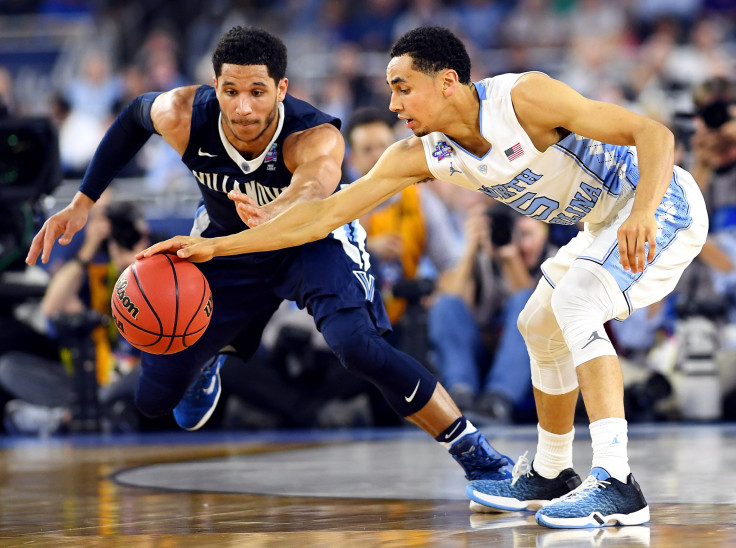Here’s Why CBS And Turner Extended Their NCAA March Madness Agreement Into The 2030s

Any “Star Wars” fan worth her salt knows Lando Calrissian’s classic line from “The Empire Strikes Back”: “This deal is getting worse all the time.”
TV executives know the feeling.
Live sports events are one of the few sure bets for pulling a big audience that won’t skip ads, and a gangbusters promotional vehicle that will reach at least a respectable number of advertiser-coveted younger men.
The people in charge of various sports leagues — the NFL, the NBA, the NCAA, the IOC — know this too. PricewaterhouseCoopers estimates that by 2019, sports media rights alone will bring in $20 billion to their respective leagues. Each time the parties sit down at the negotiating table, the rights holders ask for more money, and the networks hold their noses and fork it over.
This happened Tuesday. CBS and Turner, which have jointly televised the entirety of March Madness for six years straight, extended their deal with the NCAA through 2032. (For perspective, the players who'll be in that tournament are likely still in diapers right now.) The two companies agreed to pay $8.8 billion to extend the deal — which wasn’t even set to expire for another eight years. That’ll take the total the two networks are paying from $770 million a year to $1.1 billion, starting in 2024.
“The NCAA Men’s Basketball Championship has been a cornerstone of CBS Sports for more than three decades, and we are very pleased to extend our successful partnership with the NCAA and Turner under the same terms that have worked so well for us these past several years,” CBS Sports Chairman Sean McManus said in a statement. This despite ratings for the 2016 Final Four and Championship Game that were down from previous years.
A lot can happen in 16 years. But the crucial element of these deals, one could argue, isn’t necessarily the broadcast rights. Every single major sports deal also includes the streaming rights right along with those for TV. As viewing steadily shifts from video delivered via cable to video delivered via Wi-Fi, keeping hold of the streaming piece of the pie becomes more important. It’s as much about not allowing upstarts like Amazon or Apple to get them as anything else.
The NFL threw a bit of a wrench into the streaming mix by selling separate streaming rights to 10 Thursday Night Football games to Twitter for a measly $10 million. But those 10 games will not just be broadcast by TV partners NBC and CBS; those networks still get to stream them on their own sites and apps, and doubts remain about the number of pro football fans who will choose Twitter over any of the other myriad viewing options available to them.
So it’s understandable that the networks are eager to lock in these rights and rates for as long as possible and will shell out premiums of nearly 50 percent; and it’s why, despite continued concerns over rising costs, sports will be the glue that keeps holding TV together. For a little while longer, at least.
© Copyright IBTimes 2024. All rights reserved.






















